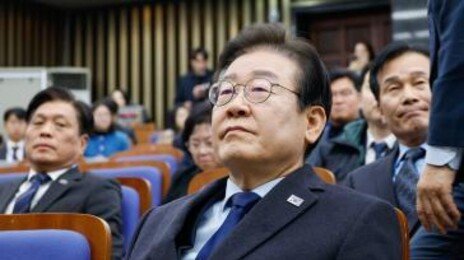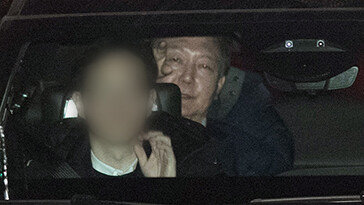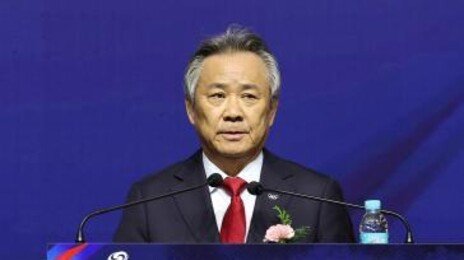?? ??? ???? ?? 南北??… ?? 北 ?? ???? ??? ??
??? ??-????? ?? ?? ? ?? ?? ?? ‘??? ??’? ???
?? ? ??? ??? 美 ????? ??? ?? ?????? ?? ? ?

??? ???? ??? ?? ?????? ? ? ? ????? ???. ??? ??? ?? ??????. ???? ?? ????. ??? ???? ????. ?? ???? ???? ?? ??? ???? ??? ??. ?? ??? ???? ?? ????? ?? ????? ???? ???? ???? ????? ? ???? ??? ?? ? ?? ????.
??? ? ?? ???? ??, ??? ?? ???? ???? ????? ???? ???? ? ?? ?? ??? ??? ???. ?????? ??? ?? ??? ??????, ?? ???? ????? ???? ??? ??? ???? ?? 2007? 10·4 ????? ??? ??? ??. ?? ??? ?? ???. ??? ???? ??? ???? ?? ????? ?????? ?? ??? ????.
??? ???? ??? ??? ????? ??? ?? ?????. ?? ??? 10?? ?? ??? ???. ??? ????? ???? ????? ???? ??(raison d‘etre)? ? ? ??. ?? ??? ??? ???? ??, ??? ??? ??? ?? ???? ??, ????? ?? ??? ?? ?? ?? ??? ?? ??? ??? ???? ? ?? ??? ??? ???? ??? ???? ????.
???? ??? ???? ??? ???? ??? ??? ? ??? ?? ?? ??? ???. ?? ??? ??? ???? ??? ??? ?? ?? ????? ???? ?? ???? ?? ???. ?????? ? ? ?? ??????? ??? ??, ??, ??? ? ?????? ??? ??? ??? ? ?? ??? ???.
??? ??, ?????? ??, ????? ??? ?? ?? ??? ??? ?? ? ??. ? ???? ???? ?? ??? ??? ?? ???? ?? ?? ??????? ’?? ??? ?? ?? ??‘ ????? ??? ???. ?? ???? ??? ?????? ? ?? ?? ????. ?? ?? ??? ????? ???? ??? ??? ??. ?? ?? ??? ?? ?????. ??? ??????. ??? ??? ??? ?????? ??? ??? ?? ?? ??? ??? ??? ????? ???.
??? ?? ??? ? ??? ? ???? ????? ??? ???. ?? ?? ??. ? ???? ? ???? ? ?? ????? ?? ????, ??? ??? ??? ?? ???? ?? ??? ??? ??? ????? ??? ???. ??? ???? ??? ?? ??? ??? ??? ??? ?? ?? ???? ????. ??????? ??? ???? ???? ?????? ?? ??? ?? ?? ????? ??? ????? ???. ??? ???? ???? ????? ??? ?? ?? ??? ????? ??? ??? ??? ???? ??? ?? ? ?? ??.
????? ?? ??? ???? ??, ?? ??? ?? ???? ????, ???? ?? ?? ??? ?? ?? ??, ???? ?? ?? ???? ? ?? ? ????? ??? ? ??. ??? ???? ??? ?? ??? ?? ??? ??? ??? ??? ?? ???? ??? ???. ? ???? ????? ?? ? ?? ???? ???? ?? ?? ??? ???? ???? ??? ????? ???? ??? ?? ???, ??? ??? ???? ? ?? ???? ??? ??? ????? ?? ?? ?????. ??? ???? ?? ?? ?? ??.
??? ?? ??????·??? ?????? ??
▼?? ??▼
“The Moon-Kim Summit was a Big Missed Opportunity”
It has been several weeks now since the summit between South Korean President Moon Jae-In and North Korean leader Kim Jong Un. By appearances, it was a great success. The ceremony bedazzled. The symbolism overwhelmed. My Korean friends and family were genuinely moved and touched by it all. Even my hawkish friends and colleagues - those worried about North Korean human rights and South Korean security in this year’s negotiations - responded with grudging admiration for Moon‘s achievement.
Not six months ago, we were talking about war, possibly nuclear war, in Korea. Yet, in April peace seemed to be at hand. This was an enormous achievement for Moon. If he does nothing else in his presidency, this summit will go down in the history books. The pageantry awed the world; the Panmunjom Declaration commits both sides to peace; and Donald Trump’s 2017 march to war was diverted. Given last year‘s anxieties, that last was a major achievement.
But the foreign policy promise of a left-progressive government in South Korea has always been that it could break the inter-Korean stalemate. Moon has implied for years that if given a chance, he could turn this upside down, get the peace process moving again, and get North Korea to strike deals which would reduce tension, slow the nuclearization of the peninsula, and lighten the harshness of North Korea‘s internal rule.
Conservatives, from this perspective, have little to offer but more of the same - more confrontation, more sanctions, more threats of war, and so on. And indeed, South Korean and American hawks have generally been sidelined this spring as unnecessarily skeptical and recalcitrant. Last week I spoke a North Korea panel at the Sydney Writers’ Festival, where my anxieties about North Korean human rights and the legitimating aspects of a peace treaty were characterized as cold war throwbacks. In South Korea, the normally tough, anti-communist conservative press has been quiet. Peace is at hand, and the doves on North Korea are ascendant.
It is therefore surprising and a little disappointing that the actual results of the 2018 inter-Korean summit were so thin. The South Korean left has had ten years to prepare for this. Indeed, the summit is its raison d‘etre on foreign policy altogether. The left’s resistance to THAAD, its grudging acceptance of the North‘s culpability for the Cheonan sinking, its ambivalent attitude to US Forces Korea, and so on are all based in the notion that its outreach to North Korea would bring better results than conservative confrontation.
Yet this did not really happen. The declaration restates rosy language from previous declarations. But there is almost no detail at all, so the actual issues at stake - nuclear weapons, missiles, human rights, a peace treaty, sanctions relief and economic engagement, and so on - made no obvious forward progress. The whole world is still waiting for North Korea to put forward genuine concessions for which the South - and the US and Japan - might genuinely bargain. But so far, the North’s concessions are not serious; they are faux concessions:
Family reunions, while important to us, are not a costly concession to the North. Closing a damaged nuclear facility which might explode into a Korean Chernobyl is not a concession either. Agreeing to talk and talk and talk - to Trump, to Moon again, to the Japanese, the Chinese, the Russians, the international finance community… - is not a concession either. Nor are inter-Korean economic deals which net North Korea legal hard currency.
A genuinely costly concession would be something like North Korea surrendering nuclear warheads, closing a gulag, or opening nuclear facilities to inspectors. Kim has yet to put those on the table, so in the end, all the Panmunjom meeting did is ‘kick the can down the road’ - the major issues were put off yet again to be resolved later on. But this of course has been the problem in dealing with North Korea for many years. Tough choices are forestalled. Verification is unresolved. Fine words do not translate into a clear sequence of steps to actually pin down the North Koreans to change.
Doves will argue that all these steps are yet to come. And perhaps they are. Moon is to meet Kim later, and perhaps working level staff meetings will start producing clear steps we can examine in detail. But for now, the Moon administration has missed a chance and allowed the Trump administration to once again take the lead. Trump‘s summit with Kim is next, and the Panmunjom Declaration curiously puts no restrictions or framework on that. Trump is basically free, unconstrained by any previous concrete inter-Korean agreement, to negotiate the way he wishes.
This is an enormous risk, give Trump’s general disdain for US allies, his harping on South Korea particularly, his long-standing complaints about US trade relations with Asia, and his racism. Who knows what kind of deal Trump will offer the North and if he will look out for South Korea‘s interests? Not only did Moon provide little concrete to redeem the left’s long-standing claim to plot a better course on North Korea, he left the door open for a reality TV star with no knowledge of Korea to structure peninsular relations. Quite a missed opportunity.
Robert E Kelly (@Robert_E_Kelly) is a professor of international relations in the Department of Political Science and Diplomacy at Pusan National University. More of his work may be found at his website,AsianSecurityBlog.wordpress.com.
???? >
??
?? ???? ?????!
-

???
??
-

???? ?? ??
??
-

???? ??? ??? ???
??
-
- ???
- 0?
-
- ???
- 0?
-
- ???
- 0?
![[????/???]5??? ???? ??… ??? ?? ??? ??](https://dimg.donga.com/a/180/101/95/2/wps/NEWS/IMAGE/2025/01/13/130855916.1.png)



?? 0